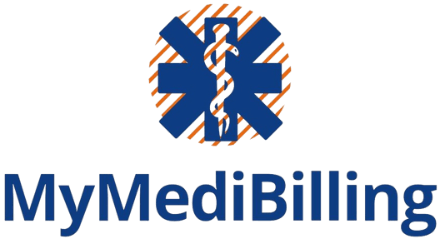Introduction
In the complex world of medical billing, accurate insurance verification is crucial for ensuring that healthcare providers receive proper reimbursement for the services they provide. Insurance verification services play a vital role in the revenue cycle management process, as they help to confirm a patient’s coverage and eligibility, as well as determine the extent of their benefits. Without accurate insurance verification, healthcare providers run the risk of facing claim denials, delayed payments, and potential compliance issues.
Therefore, healthcare organizations need to invest in reliable insurance verification services to streamline their billing process and maximize their revenue. Accurate insurance verification is essential for ensuring that healthcare providers receive proper reimbursement for the services they provide. Insurance verification services play a vital role in the revenue cycle management process, as they help to confirm a patient’s coverage and eligibility, as well as determine the extent of their benefits.
Without accurate insurance verification, healthcare providers run the risk of facing claim denials, delayed payments, and potential compliance issues. Therefore, healthcare organizations need to invest in reliable insurance verification services to streamline their billing process and maximize their revenue.
Key Takeaways
- Accurate insurance verification is essential for medical billing to ensure proper reimbursement and avoid denials.
- Outsourcing insurance verification services can streamline the medical billing process and improve revenue cycle management.
- Technology plays a crucial role in insurance verification services, helping to ensure accuracy and efficiency.
- Compliance with insurance verification is important to avoid denials and maintain a smooth revenue cycle.
- Best practices for effective insurance verification include thorough verification processes and regular staff training.
Importance of Accurate Insurance Verification
Accurate insurance verification is crucial for ensuring that healthcare providers receive proper reimbursement for the services they provide. By verifying a patient’s insurance coverage and eligibility, healthcare organizations can avoid claim denials and ensure that they are billing the correct insurance company for the services rendered. This not only helps to streamline the billing process but also ensures that healthcare providers can maximize their revenue and avoid potential compliance issues.
Accurate insurance verification is crucial for ensuring that healthcare providers receive proper reimbursement for the services they provide. By verifying a patient’s insurance coverage and eligibility, healthcare organizations can avoid claim denials and ensure that they are billing the correct insurance company for the services rendered. This not only helps to streamline the billing process but also ensures that healthcare providers can maximize their revenue and avoid potential compliance issues.
Streamlining the Medical Billing Process with Insurance Verification Services
Insurance verification services play a crucial role in streamlining the medical billing process. By verifying a patient’s insurance coverage and eligibility upfront, healthcare organizations can avoid potential claim denials and delays in payment. This not only helps to improve cash flow but also reduces the administrative burden on staff, allowing them to focus on providing quality patient care.
Additionally, by streamlining the billing process with insurance verification services, healthcare organizations can improve their overall revenue cycle management and ensure that they are maximizing their reimbursement for the services they provide. Insurance verification services play a crucial role in streamlining the medical billing process. By verifying a patient’s insurance coverage and eligibility upfront, healthcare organizations can avoid potential claim denials and delays in payment.
This not only helps to improve cash flow but also reduces the administrative burden on staff, allowing them to focus on providing quality patient care. Additionally, by streamlining the billing process with insurance verification services, healthcare organizations can improve their overall revenue cycle management and ensure that they are maximizing their reimbursement for the services they provide.
Benefits of Outsourcing Insurance Verification
| Reasons | Benefits |
|---|---|
| Accuracy | Ensures accurate patient information and coverage details |
| Reduced Errors | Minimizes billing errors and claim rejections |
| Efficiency | Streamlines the billing process and reduces administrative burden |
| Cost Savings | Helps in avoiding costly claim denials and rework |
| Compliance | Ensures compliance with insurance regulations and requirements |
Outsourcing insurance verification can offer numerous benefits for healthcare organizations. By partnering with a reputable third-party vendor, healthcare providers can access specialized expertise and resources to ensure accurate and timely insurance verification. This not only helps to reduce the administrative burden on staff but also allows healthcare organizations to focus on providing quality patient care.
Additionally, outsourcing insurance verification can help to improve efficiency and accuracy, ultimately leading to improved revenue cycle management and increased reimbursement for services rendered. Outsourcing insurance verification can offer numerous benefits for healthcare organizations. By partnering with a reputable third-party vendor, healthcare providers can access specialized expertise and resources to ensure accurate and timely insurance verification.
This not only helps to reduce the administrative burden on staff but also allows healthcare organizations to focus on providing quality patient care. Additionally, outsourcing insurance verification can help to improve efficiency and accuracy, ultimately leading to improved revenue cycle management and increased reimbursement for services rendered.
Ensuring Compliance and Avoiding Denials with Insurance Verification
Accurate insurance verification is essential for ensuring compliance with payer requirements and avoiding claim denials. By verifying a patient’s insurance coverage and eligibility upfront, healthcare organizations can ensure that they are billing the correct insurance company for the services provided. This not only helps to avoid potential compliance issues but also reduces the risk of claim denials and delays in payment.
Therefore, accurate insurance verification is crucial for ensuring that healthcare providers are able to maintain compliance with payer requirements and maximize their reimbursement for services rendered. Accurate insurance verification is essential for ensuring compliance with payer requirements and avoiding claim denials. By verifying a patient’s insurance coverage and eligibility upfront, healthcare organizations can ensure that they are billing the correct insurance company for the services provided.
This not only helps to avoid potential compliance issues but also reduces the risk of claim denials and delays in payment. Therefore, accurate insurance verification is crucial for ensuring that healthcare providers are able to maintain compliance with payer requirements and maximize their reimbursement for services rendered.
The Role of Technology in Insurance Verification Services
Technology plays a crucial role in insurance verification services, as it allows healthcare organizations to access real-time information about a patient’s coverage and eligibility. By leveraging advanced technology solutions, healthcare providers can streamline the insurance verification process and ensure accuracy and efficiency. This not only helps to reduce administrative burden but also improves overall revenue cycle management by minimizing claim denials and delays in payment.
Therefore, technology is an essential component of insurance verification services, as it allows healthcare organizations to access timely information and maximize their reimbursement for services rendered. Technology plays a crucial role in insurance verification services, as it allows healthcare organizations to access real-time information about a patient’s coverage and eligibility. By leveraging advanced technology solutions, healthcare providers can streamline the insurance verification process and ensure accuracy and efficiency.
This not only helps to reduce administrative burden but also improves overall revenue cycle management by minimizing claim denials and delays in payment. Therefore, technology is an essential component of insurance verification services, as it allows healthcare organizations to access timely information and maximize their reimbursement for services rendered.
Improving Revenue Cycle Management through Insurance Verification
Accurate insurance verification is essential for improving revenue cycle management within healthcare organizations. By verifying a patient’s insurance coverage and eligibility upfront, healthcare providers can ensure that they are billing the correct insurance company for the services provided. This not only helps to minimize claim denials and delays in payment but also improves overall cash flow and financial performance.
Additionally, by improving revenue cycle management through accurate insurance verification, healthcare organizations can maximize their reimbursement for services rendered and ensure financial stability. Accurate insurance verification is essential for improving revenue cycle management within healthcare organizations. By verifying a patient’s insurance coverage and eligibility upfront, healthcare providers can ensure that they are billing the correct insurance company for the services provided.
This not only helps to minimize claim denials and delays in payment but also improves overall cash flow and financial performance. Additionally, by improving revenue cycle management through accurate insurance verification, healthcare organizations can maximize their reimbursement for services rendered and ensure financial stability.
Best Practices for Effective Insurance Verification in Medical Billing
There are several best practices that healthcare organizations can implement to ensure effective insurance verification in medical billing. First and foremost, it is essential to verify a patient’s insurance coverage and eligibility upfront to avoid potential claim denials and delays in payment. Additionally, leveraging advanced technology solutions can help streamline the insurance verification process and ensure accuracy and efficiency.
Furthermore, outsourcing insurance verification to a reputable third-party vendor can provide specialized expertise and resources to ensure accurate and timely verification. By implementing these best practices, healthcare organizations can improve their revenue cycle management and maximize their reimbursement for services rendered. There are several best practices that healthcare organizations can implement to ensure effective insurance verification in medical billing.
First and foremost, it is essential to verify a patient’s insurance coverage and eligibility upfront to avoid potential claim denials and delays in payment. Additionally, leveraging advanced technology solutions can help streamline the insurance verification process and ensure accuracy and efficiency. Furthermore, outsourcing insurance verification to a reputable third-party vendor can provide specialized expertise and resources to ensure accurate and timely verification.
By implementing these best practices, healthcare organizations can improve their revenue cycle management and maximize their reimbursement for services rendered.
Conclusion
Accurate insurance verification is essential for ensuring proper reimbursement for healthcare providers’ services. By streamlining the medical billing process with insurance verification services, healthcare organizations can improve their revenue cycle management and ensure financial stability. Outsourcing insurance verification can offer numerous benefits by providing specialized expertise and resources to ensure accurate and timely verification. Additionally, leveraging advanced technology solutions plays a crucial role in improving efficiency and accuracy within the insurance verification process. By implementing best practices for effective insurance verification, healthcare organizations can maximize their reimbursement for services rendered while maintaining compliance with payer requirements.
Overall, investing in reliable insurance verification services is crucial for ensuring financial success within the complex world of medical billing.


